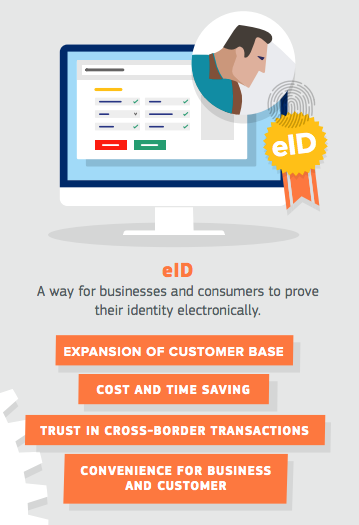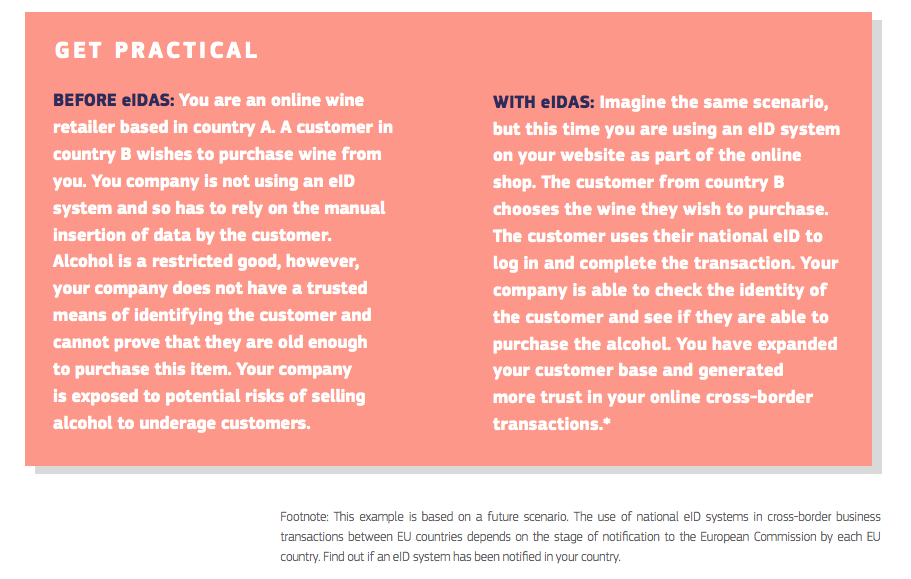-
0 comments
The benefits of eID for your cross-border business operations
Since the 29th of September 2018, the mandatory cross-border recognition of notified eID under the eIDAS Regulation is in force, but what does this exactly mean for businesses in Europe?
Back to basics: What is electronic Identification (eID)?
Electronic identification (eID) allows businesses and consumers to prove electronically that they are who they say they are and gain access to services or carry out business transactions online.
eID systems can be used by your SME in both business-to-business and business-to-consumer transactions and provides businesses with the opportunity to carry out stronger checks on the identity of customers and other clients. This is of particular use when trading restricted goods (e.g. alcohol) or in high value transactions (e.g. the sale of artwork, transfers of large amounts of money).
What are the benefits of notified eID systems for my business?
/futurium/en/file/eideID

By integrating the use of notified national eID systems in their business processes, businesses in Europe will be able to:
Gain future access to new markets in the European Union through the cross-border identification/authentication of potential customers or clients.
• Save time and therefore money through the rapid and trusted identification of customers.
• Get greater security in your cross-border transactions through stricter identification checks on customer details (particularly for high value of restricted goods such as alcohol).
• Increase convenience for clients and customers by enabling the use of their national ID that they already have.
eID and the eIDAS Regulation
Since the 29th of September, all EU countries have to recognise foreign eID schemes that have been notified to the European Commission. The notification process ensures that all notified national eID schemes meet the quality and security requirements established in the eIDAS Regulation. Member States may also notify their national eID systems but may choose not to open these systems to the private sector, although they are encouraged to do so.
A practical example of eID implementation
/futurium/en/file/eid-exampleeID example

For more information on eID and trust Services
Visit the eIDAS for SMEs web pages on the Digital Single Market website where you will find a set of materials including infographics, sector-specific use cases, an interactive tool and a series of cutting-edge, exploratory webinars.
Follow us:
/futurium/en/file/social-media-smeSocial Media SME


